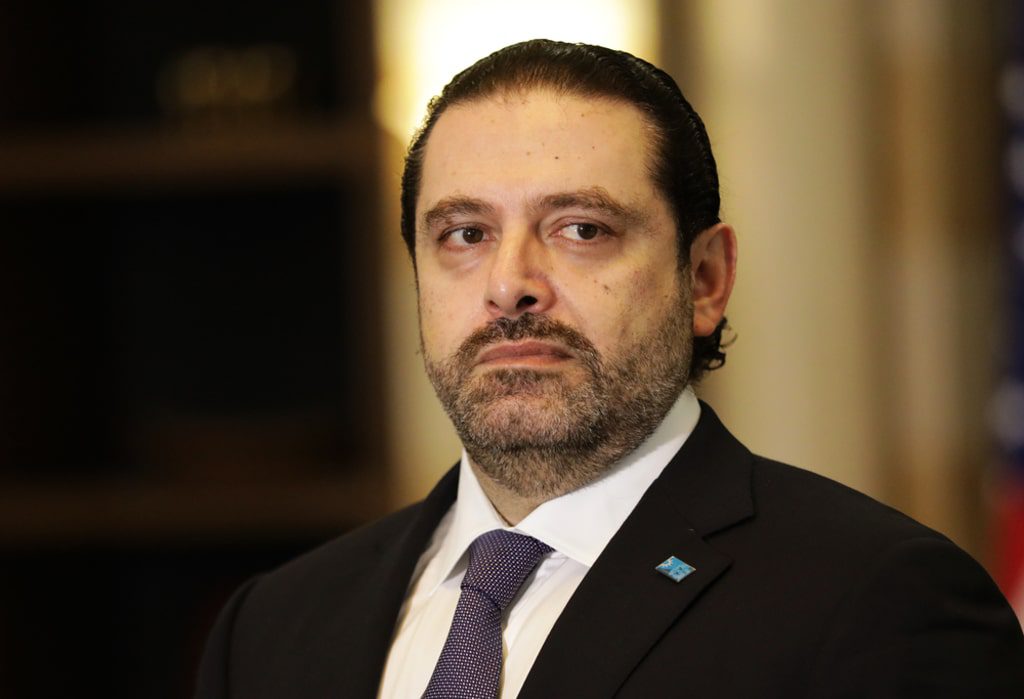
Nominated as prime minister by Lebanese President Michel Aoun on 18 December 2016, Saad Hariri (47) is first and foremost a businessman whose private financial interests can interfere with his public role. Both adored and mocked, his position is often hard to maintain.
Leader of the Future Movement, a Sunni Muslim political party from the anti-Syrian March 14 alliance, and son of the assassinated former Prime Minister Rafik Hariri, Saad Hariri himself became prime minister (always a Sunni due to the proportional representation system), first from 2009-2011 and again in December 2016.
In 1998, he married Lara al-Azem, the daughter of Bashir al-Azem, an influential and wealthy Syrian construction magnate. He has three children with her. As of November 2017, his net worth was estimated at $1.5 billion.
He completed his education in Lebanon, France and Saudi Arabia, all three of which he is a citizen of, and then received an international business degree from Georgetown University in 1992. Ready to step into the family business, he oversaw construction work at Saudi Oger, a Saudi-based construction company owned by his father, until being appointed general manager at 26. From there, he expanded the company into telecommunications but was pushed into politics after a car bomb killed his father in Beirut.
But it was not until the Lebanese general elections of June 2009 that he made the political big time when he led his party to a parliamentary majority. He was named as prime minister the same month by former president Michel Sleiman (2008-2014) but did not manage to form a government. He resigned, was nominated again and pushed to form a unity government with the mainly Shia Hezbollah almost six months after his first nomination. As leader of the Future Movement, Hariri is against allying with Hezbollah, which is supported by Syria and Iran, except when he is forced to. He had to form this unity government but did so reluctantly.
The unity government did not last, as a group of 11 ministers from Hezbollah and allied parties withdrew from their posts in January 2011, forcing Hariri out of the picture and instead pushing Najib Mikati into the post of prime minister in June that year. This was followed, in December 2012, by a warrant issued by the Syrian government for the arrest of Hariri, Future bloc deputy Okab Sakr and Free Syrian Army official Louay Almokdad on charges of arming and providing financial support to Syrian opposition groups. Hariri dismissed the warrant and called Syrian President Bashar al-Assad a “monster”, as he was already living in France in a sort of self-imposed political exile.
He decided to return from exile in August 2014, announcing the Saudi financial backing of the Lebanese armed forces “to preserve Lebanon’s security” against jihadists on the Lebanese-Syrian border. Two years later, appointed prime minister once again, everything seemed to be going in the right direction despite his business issues.
His allegiance to Saudi Arabia was demonstrated again in a bizarre incident in early November 2017. In a televised speech from the Saudi capital Riyadh, he resigned, blaming Iran for “disorder and destruction” in Lebanon and calling Hezbollah “Iran’s arm”. His family has had ties with the kingdom since 1978, the year Saudi Oger was founded, but financial constraints in Saudi Arabia led his company to close. His resignation could have led to a major crisis in Lebanon, amid speculation that he was being held hostage by Saudi Arabia. All over the country, solidarity banners fluttered bearing the slogan ‘#IamSaad’ in Arabic. According to Reuters, ‘Sources close to Hariri [said] Saudi Arabia [had] concluded that the prime minister … had to go because he was unwilling to confront Hezbollah.’
In a spectacular turn of events, Hariri spoke again on TV to suspend his resignation three weeks later, speaking about “national consensus” and Lebanon’s relations with its “Arab brothers”. He returned to Lebanon on 6 December 2017, giving no explanation of or details about his stay in Saudi Arabia, with which he repeatedly said he was on good terms.
As if nothing had happened, life in Lebanon went on and attention turned back to the parliamentary elections in May 2018, the first since June 2009. Hariri has since announced a women’s quota in future elections, signalled a possible real change in politics and congratulated Abdel Fattah al-Sisi on his re-election as Egyptian president. In light of Hariri’s limited impact on Lebanese politics and the context of his access to the top position in first place, it may be time for him to admit that he is better suited to business.


